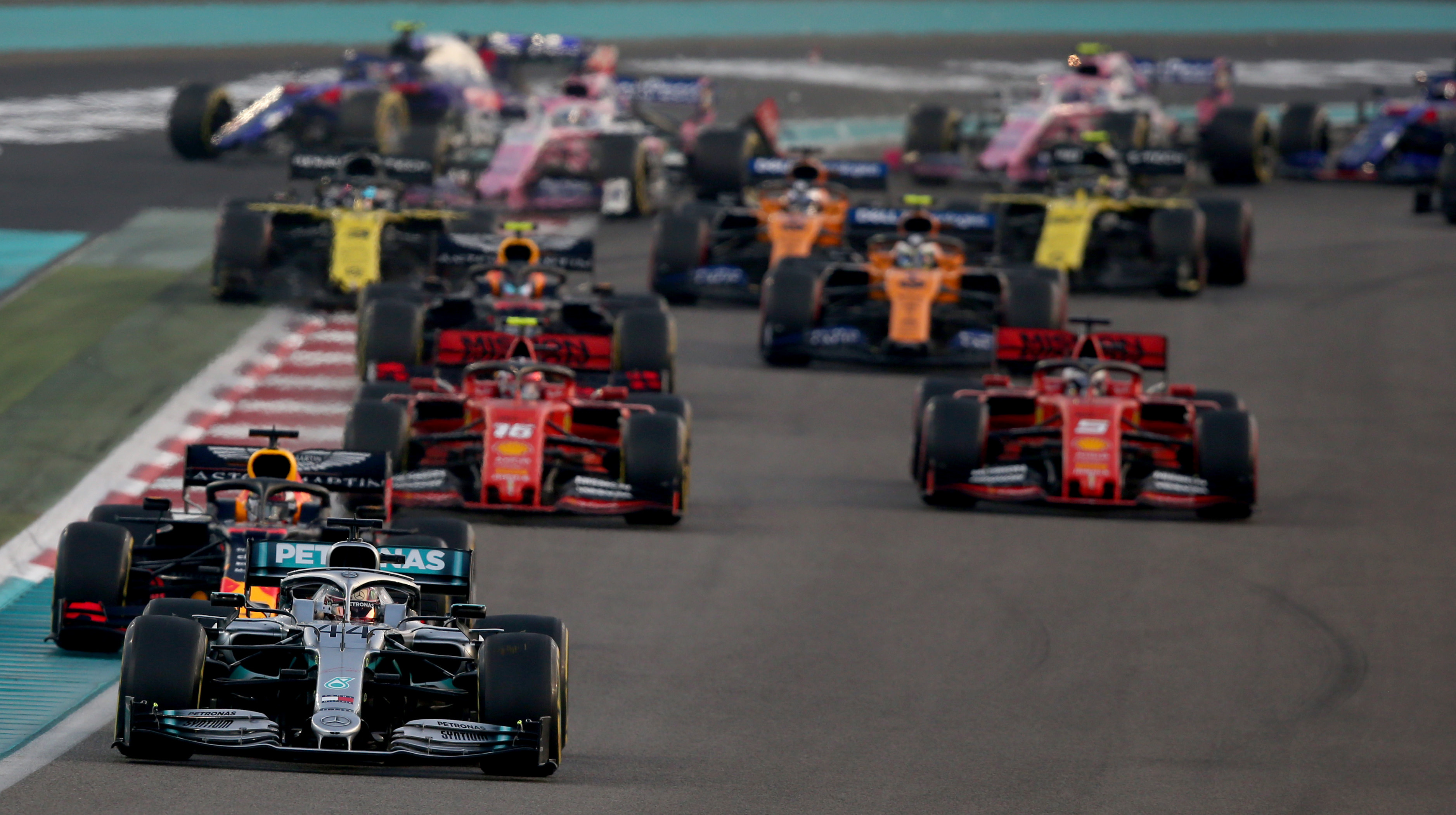FIA President Says It'll Be 'Decades' Before F1 Goes Electric, If It Even Does
On the surface, the electric Formula E Championship continues to gain ground in open-wheel racing. The FIA, the governing body also over Formula One, will soon begin recognizing Formula E as world championship, and manufacturers are flocking to it by the season. But all of that isn't putting pressure on F1 to go electric—at least, not that F1 is letting us onto.
In fact, Motorsport.com quotes FIA president Jean Todt as saying it'll be decades before F1 goes electric, if it even goes at all.
F1 has competed with a hybrid, 1.6-liter turbocharged V6 unit since 2014, when it left behind the beloved V8 era. That also happened to be the year that Formula E ran its first race with all-electric open-wheel cars, and the series has been a magnet for automaker participation since. Both Audi and Porsche left Le Mans competition in order to start Formula E teams within a year of each other, and the most dominant name in the current era of F1, Mercedes, made its first start in the series this year.
But in F1, Todt said hybrids are the way to go for now, both in terms of expected performance and the concept that they can be made more environmentally friendly. From the Motorsport.com:
"At the moment you can only consider F1 with a hybrid engine," said Todt. "You cannot envisage to have FE substituting F1. 300kms? There is not one [electric] race car able to do 300km at the F1 speed today.
"It will be decades before it can happen, if it does happen.
"Today hybrid is the proper choice, the next step is to see how we can secure greener fuels."
Todt has been one of the people touted as on board with Formula E from the start, thus it's obvious that he's in favor of electric racing outside of F1. Others quoted by Motorsport.com, like Mercedes F1 engine boss Andy Cowell and F1 CEO Chase Carey, agreed with Todt's line of thinking, with Carey saying that F1 doesn't have to be on defense because it runs hybrids instead of full EVs.
After all, automakers do manufacture hybrids as well. From the story:
"I think this is an offensive issue, not a defensive issue," he said. "Electric is going to be part of the solution. But you know, they got their own issues, whether it's economics or batteries, what have you. But I think there are a lot of issues around it.
"I think the hybrid engine can actually be, in many ways, one of the most important, if not the most important component of addressing a billion plus cars out there today with combustion engines. And we can, through initiatives like fuels, fuel technology, and energy recapture, continue to make that space."
F1 doesn't have to be on defense, either. Even with Formula E's rise, F1 reported a rise in race attendance this year over last—while just under 4.1 million people went to races in 2018, F1 announced on Thursday that the number rose to nearly 4.2 million this season in the same number of races. F1 remains a powerhouse, even if there's another open-wheel series joining the FIA world stage that's technically "greener" than it is.
Todt also makes a good point about EV performance, given the current stats of Formula E cars. Formula E itself is as entertaining as can be, but it often races on tight street circuits, where speed matters less—a good thing, for a series using emerging technology that doesn't yet boast the rocket-launch speeds of longstanding divisions like F1. Formula E had a claimed 174-mph top speed last season, for reference, while Juan Pablo Montoya hit nearly 232 mph in an F1 car in 2005.
When performance and speed are so well known in your racing series that the question of "Can an F1 car be driven upside down?" is a modern-day thought exercise even for those who aren't motorsports fans, it isn't exactly easy to trade performance for greener technology. But perhaps in a few decades, that trade-off won't have to happen.
Of course, it'll then be up to F1 whether it wants to go electric at all.
